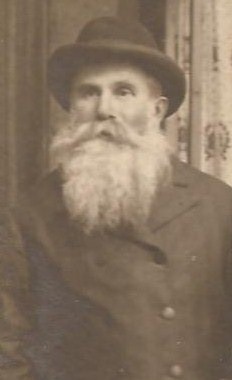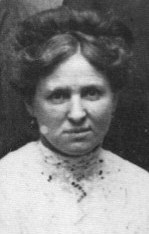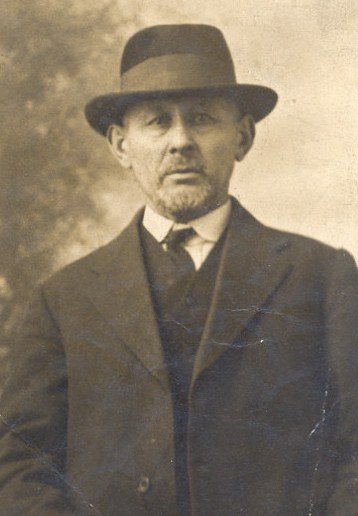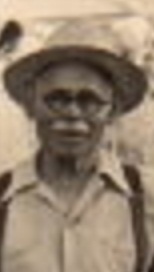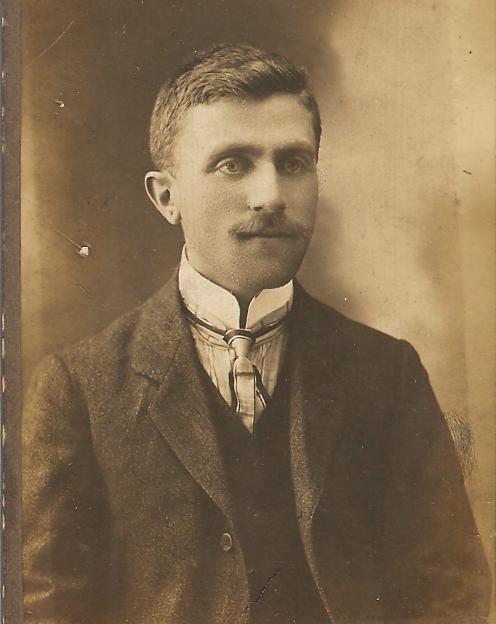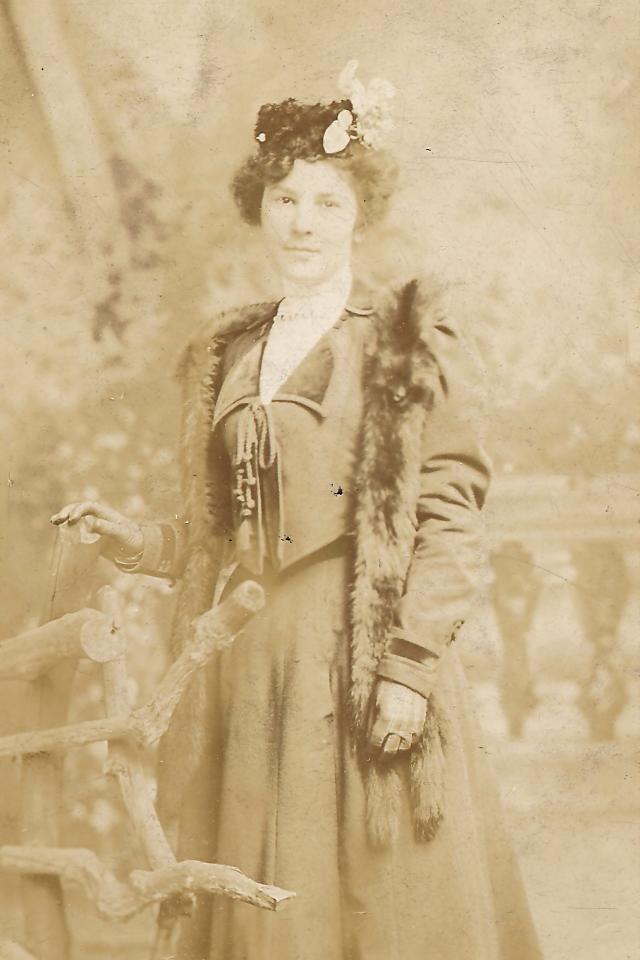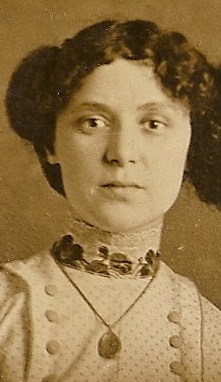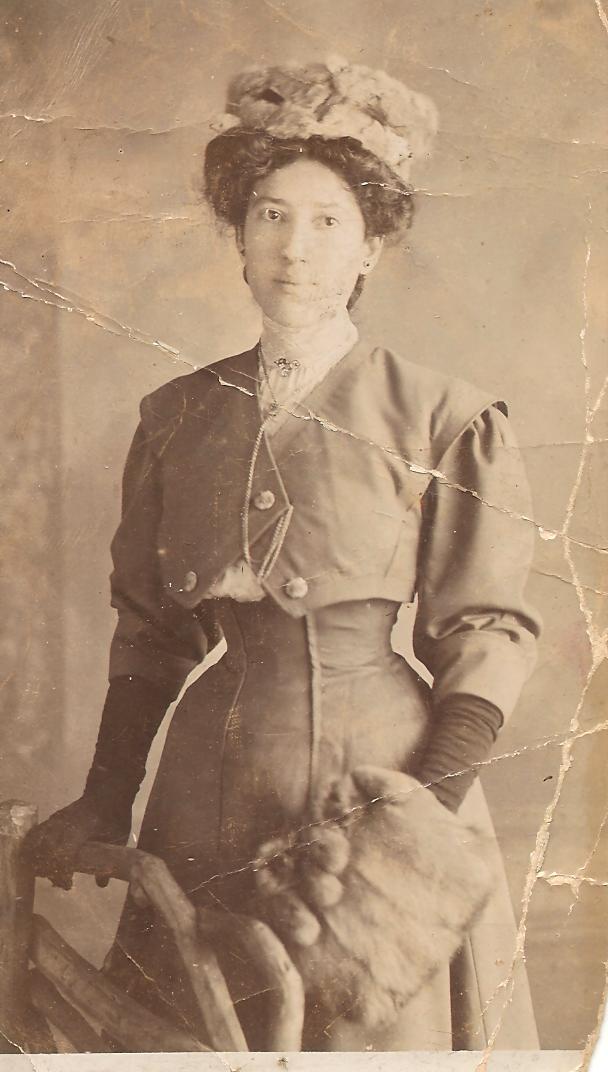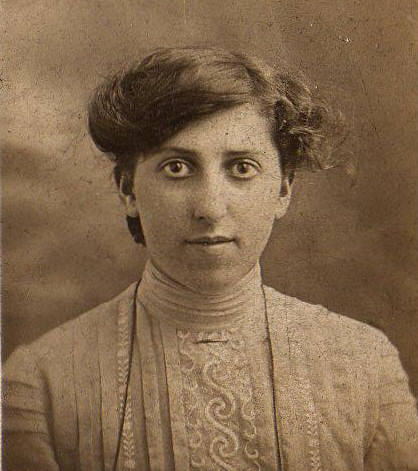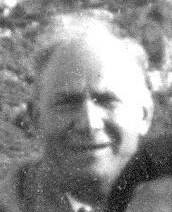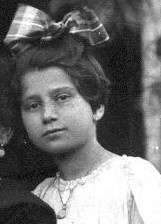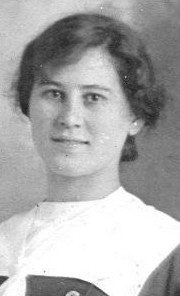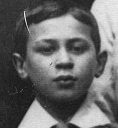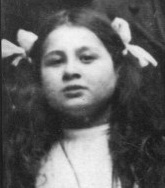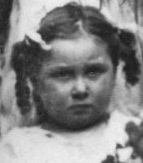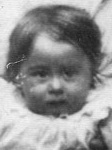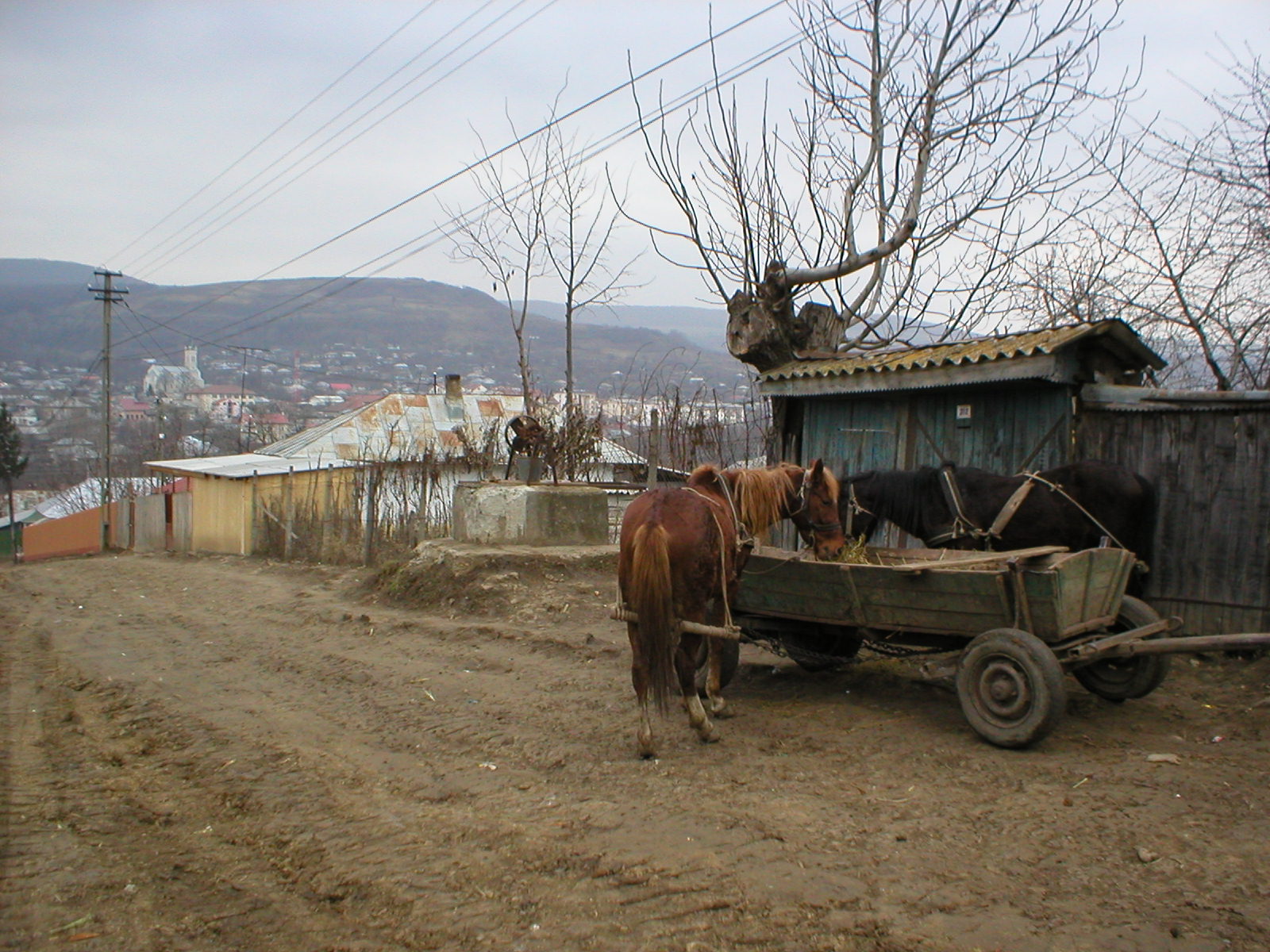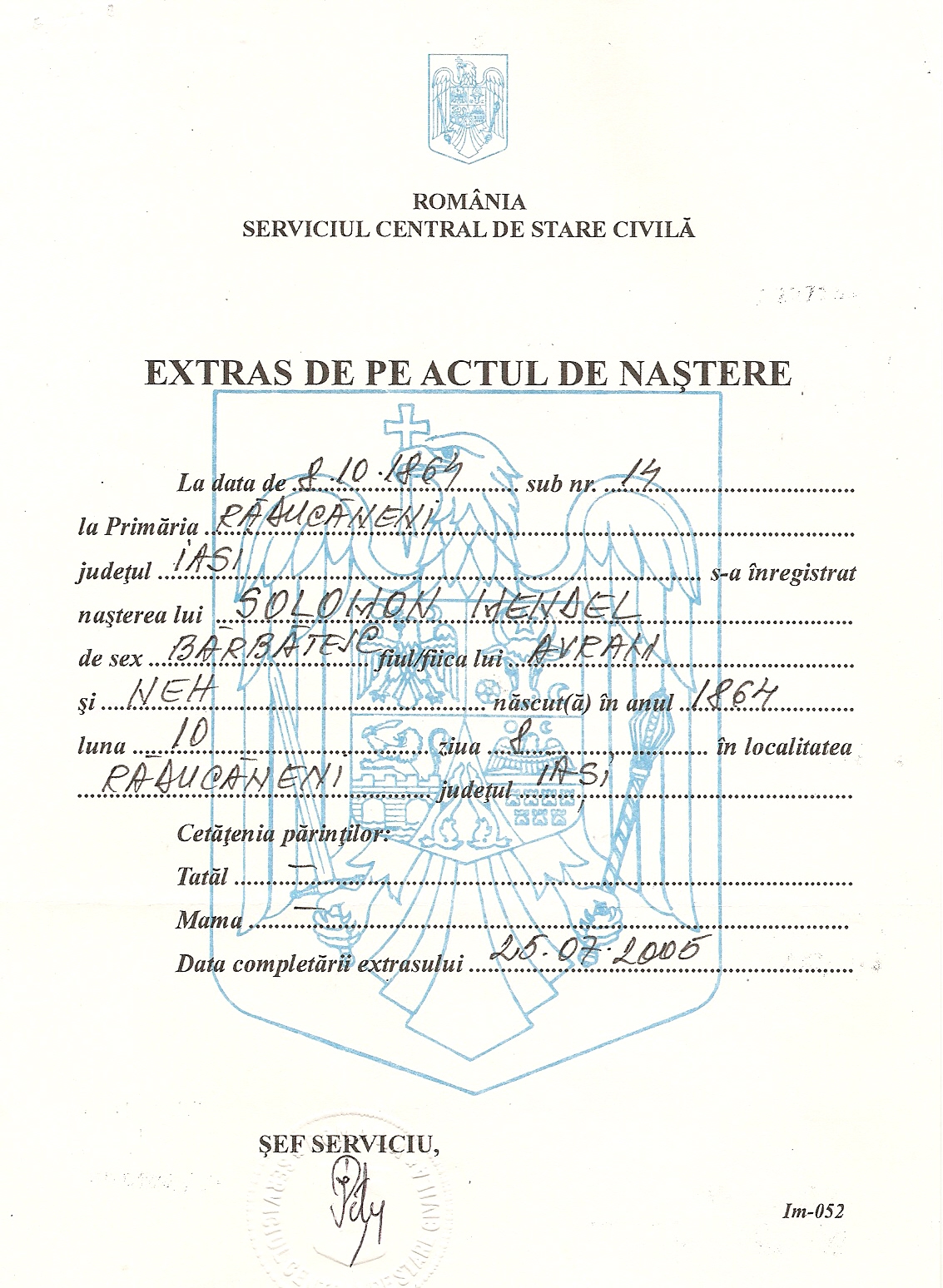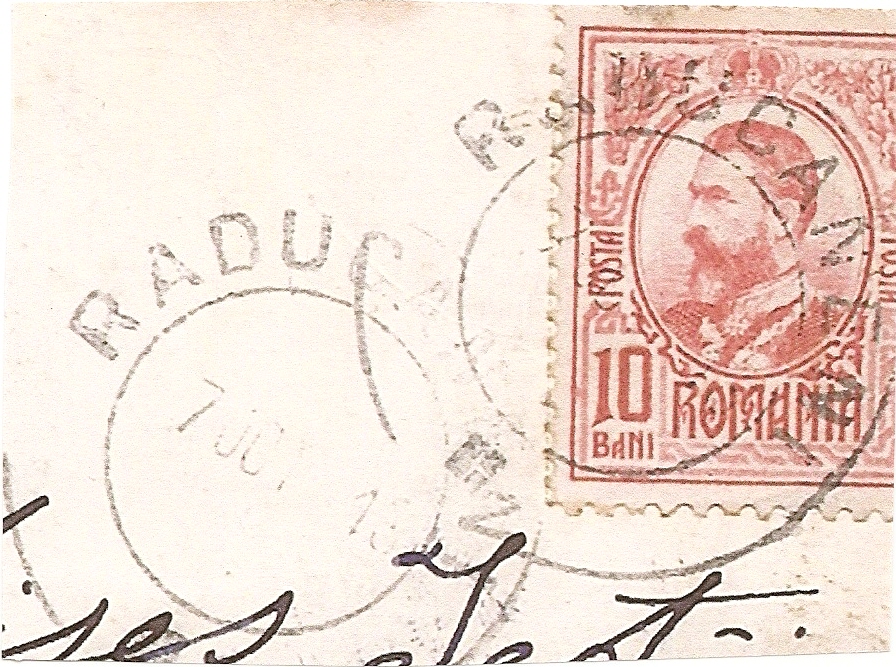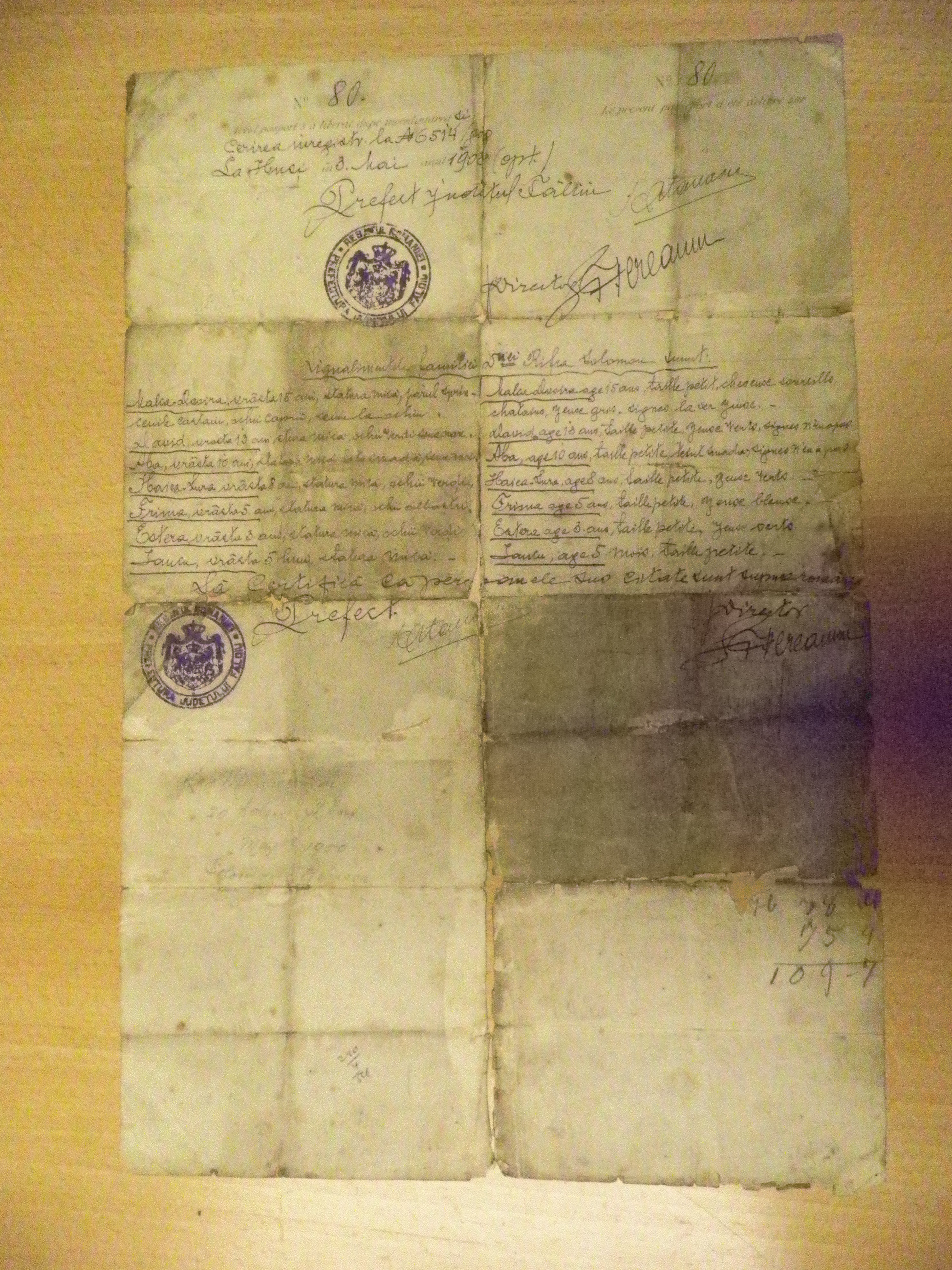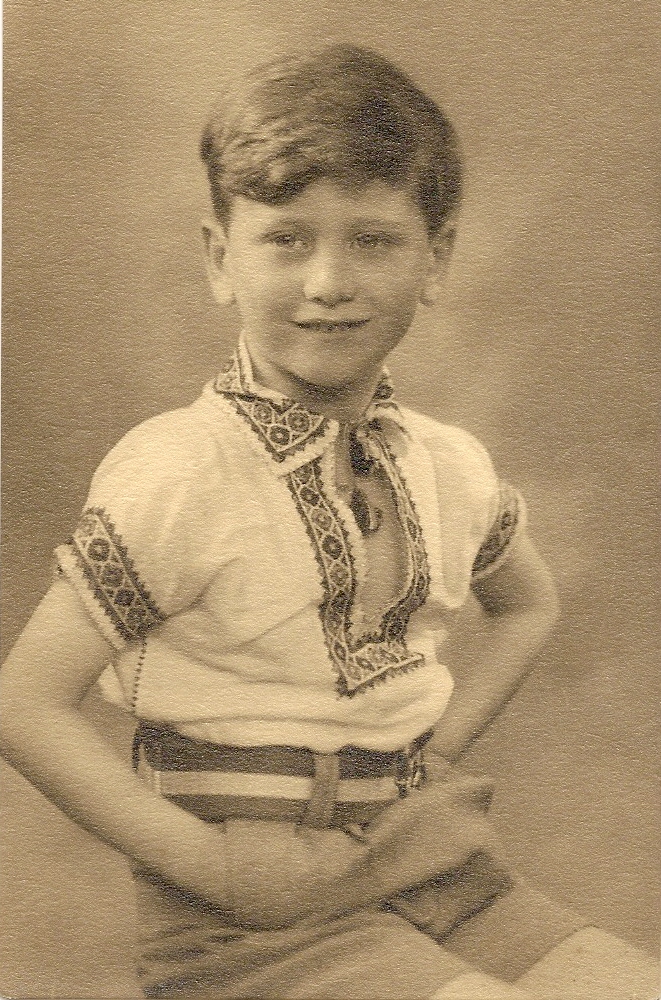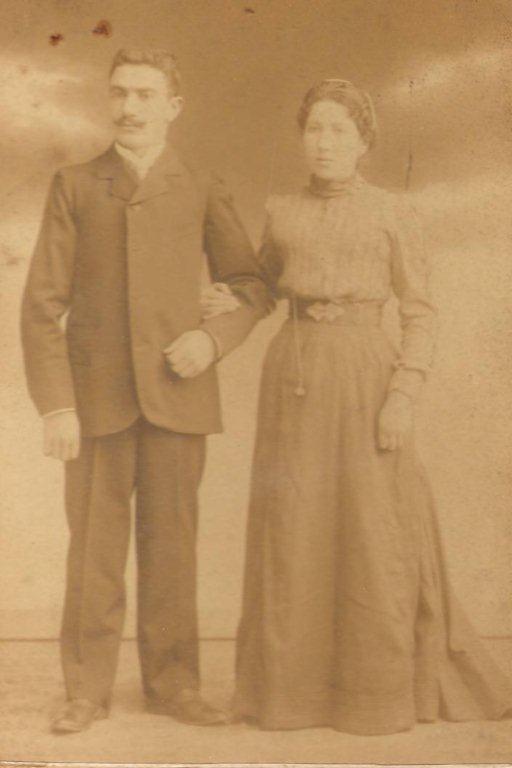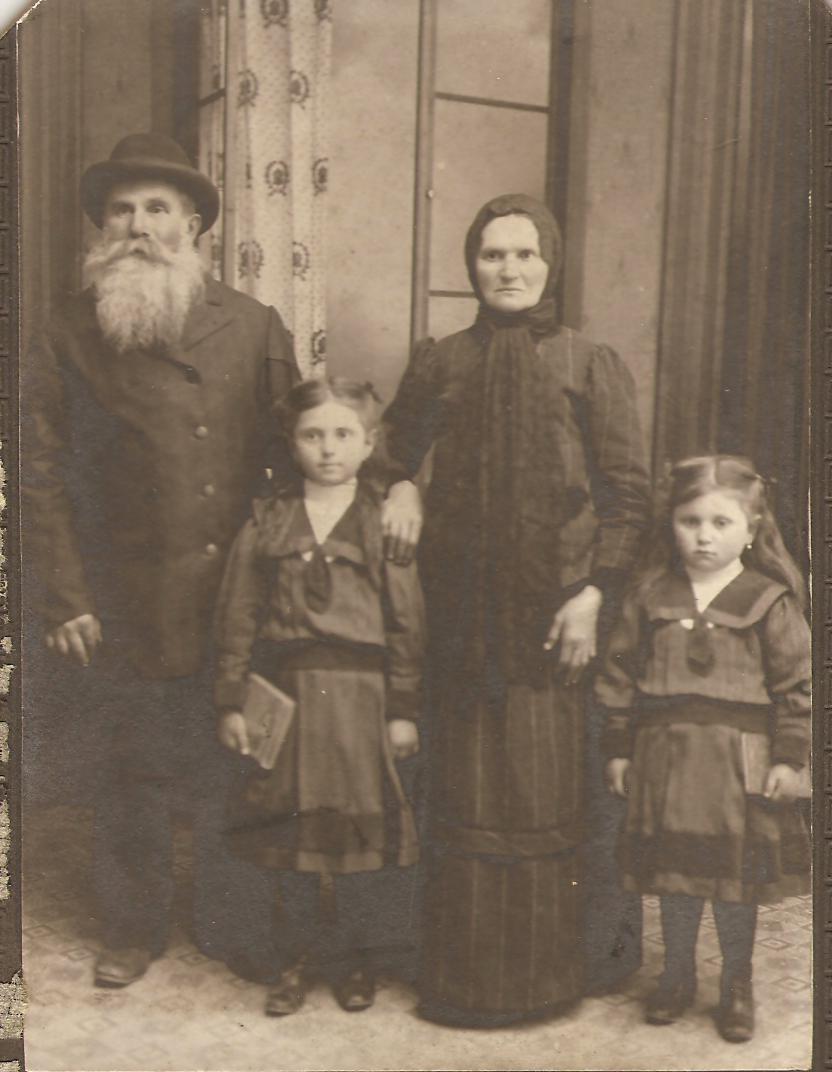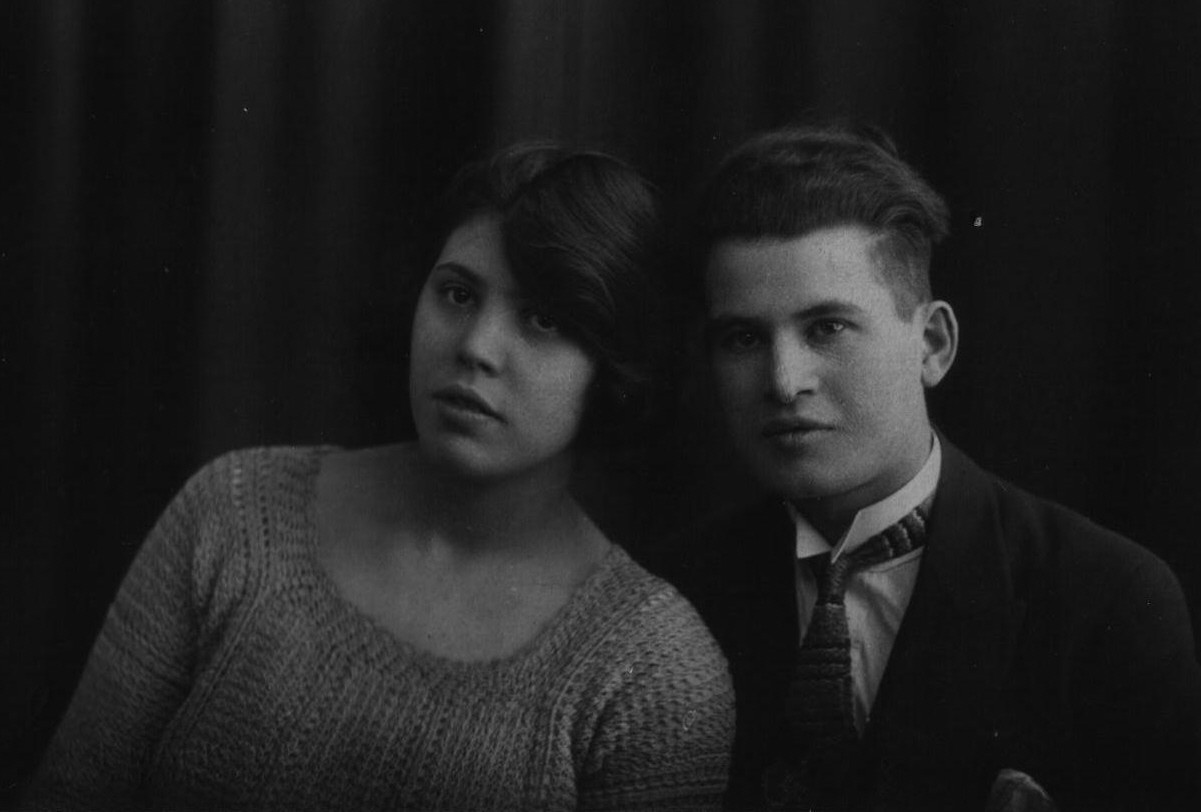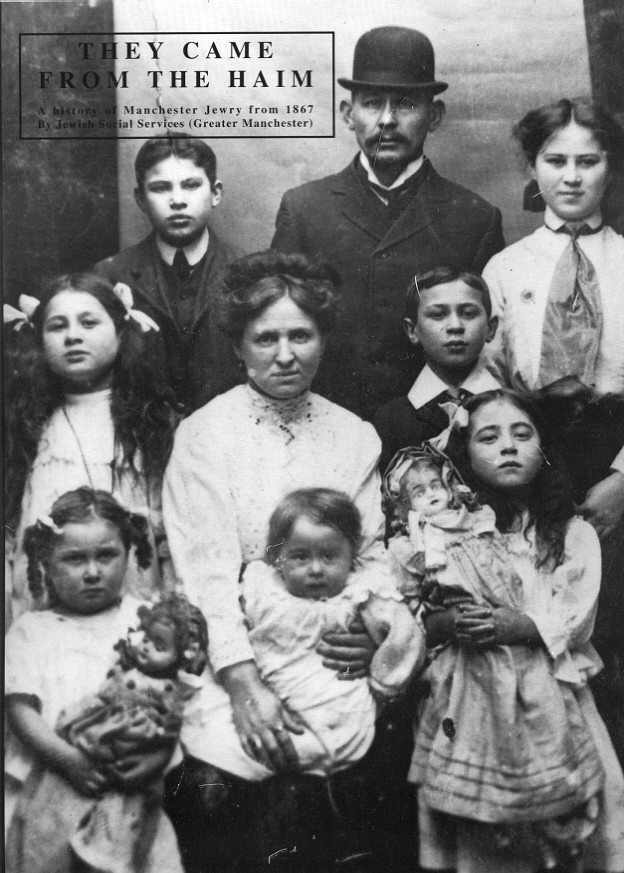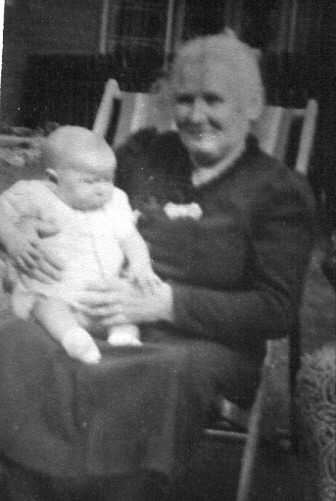Nothing is known about the
childhood and youth of Mendel Solomon. He was conscripted
into the Roumanian army at age 21 and served for the
obligatory 8 years. This would explain why he married at
29, a relatively late age in that world. He was a bugler
in the army and his experience with the wind instrument no
doubt provided him with the skills that made him an
excellent shofer bluser
(shofat blower) in one of the synagogues of
Manchester years later.
After he married, his life was typical of the lives
of many Jews from Rǎducǎneni. Most were petty traders or
dealers in grain or livestock. Mendel Solomon traded in
horses and oxen. Like many of the Jews of Rǎducǎneni, his
dress distinguished him from his non – Jewish neighbours.
The family lived in a small, poor home with a large stove
in the centre of the living area around which the family
slept in the cold, winter months. Water was obtained from
a well outside the front door.
In 1908, the family joined
the great wave of emigrants. Mendel Solomon left for
England and settled in Manchester where he became a
chicken dealer serving the Jewish community. His wife
Rifca, with the first seven of their nine children,
followed him making a horrendous journey from a quiet,
green, urban village to the dirt, tumult and bustle of a
large industrial town. The couple lived all their lives in
the same house, surrounded by the homes of their
landsleiten (people from the same town), speaking Yiddish,
and praying in the New Romanian Synagogue built according
to the architecture with which they were familiar and
praying in the nusach sephard. (The Spanish oriental style
of prayer)
When Mendel Solomon
arrived at the immigration in the port in England, he was
asked his name. As it was customary in Romania to state
the family name first, he gave his name as Solomon Mendel,
so the immigration officer registered him as Solomon
Mendelson and that became his English name.
Rifca's maiden name was
Rosenfeld; she was the daughter of David and Lea
Rosenfeld. Her mother Lea died in childbirth and Rifca was
brought up by her maternal grandfather, a money lender in
Rǎducǎneni. Prior to his granddaughter's marriage, the
grandfather put on his kapota & stramel (Sabbath hat
and coat) and emigrated to die in the Holy Land.
The eldest daughter Malca, see her birth certificate
below, had the village family name of a Dvoirei, derived
from her great grandmother Dvoira who lived till 110 years
old and was the village midwife.
The Romanian passport of
Rifca Solomon and her seven children was issued in Huşi on
the 3rd May, 1908. Rifca's brother Yankel Rosenfeld
applied for the passport on behalf of his sister and her
children. The passport states that they were Romanian
citizens.
Yankel Rosenfeld was
married to Mincie Solomon the sister of Mendel Solomon, a
brother and sister married a brother and sister, uniting
the two families. Yankel and Mincie remained in Romania,
their daughter Paulina was a concert violinist.
Shiah Rosenfeld emigrated
to Manchester. David Rosenfeld remarried three times after
the death of his first wife Lea. He had six more children
with his fourth wife Yetta, two sons, Shia and Yankel, and
four daughters, Minnie, Dorah, Betsy and Rosy.
David and Yetta Rosenfeld had a nephew also called Shiah
Rosenfeld, who also settled in Manchester, his grandsons
are Leonard & Brian Rosenfield.
In May, 1908,
Rifca Solomon, a young woman in her early thirties, made
her way from Rǎducǎneni, a small village in Moldavia, to
Manchester, England. She travelled with her seven
children, the youngest born prematurely and still wrapped
in cotton wool, the incubator of the time. The
vicissitudes of that journey must have been horrific. With
no languages except Yiddish and a smattering of Romanian,
carrying clothes, possessions, food and drink for all the
family, the little group went by horse and cart from
Raducaneni to Iasi, the big town. From there, they went by
rail north to Hamburg and from Hamburg, they took a boat
to Grimsby and on by rail to Manchester. Finally, they
went by Hackney cab to the place that was to be their home
for the rest of their lives in a working-class district of
Manchester, close to the Romanian synagogue and a number
of fellow immigrants from the old country.
Eighty-eight years later, the photograph below of that
family when they arrived in Manchester, was submitted to
the Jewish Social Services in response to an appeal for
photographs for the cover of a book describing the early
days of Manchester Jewry. It was chosen for the
frontispiece of the book.
In December,
2004, Marcel Glaskie, the grandson of the eldest daughter,
Malka, found himself in Budapest with four days to
spare. He knew about Rǎducǎneni from his grandmother
who had told him stories of the village in which she had
lived. He took an overnight train to Bucharest and hired a
car to Moldavia.
To his
amazement, it was like stepping back in time. The village
was just as his grandmother had described it: there was
one main street about 3 kilometers in length winding
through the town crossed by a few dirt tracks with
poor, simple houses on each side with a well to
serve every house and populated by simple, village folk.
There was no time for him to do more than visit the town
council offices and get the birth certificates of a few of
the children. A visit to the cemetery proved to be a waste
of time as all the gravestones dated from 1901 -1983. It
was clear that there had to be another cemetery but there
was no time to look for it. The story of the visit excited
the members of the family and, at the end of May, 2005, a
trio set out to experience the world of their
grandparents.
Many of the photographs of Rǎducǎneni in this web site,
were taken during their visit to Rǎducǎneni.
|
|
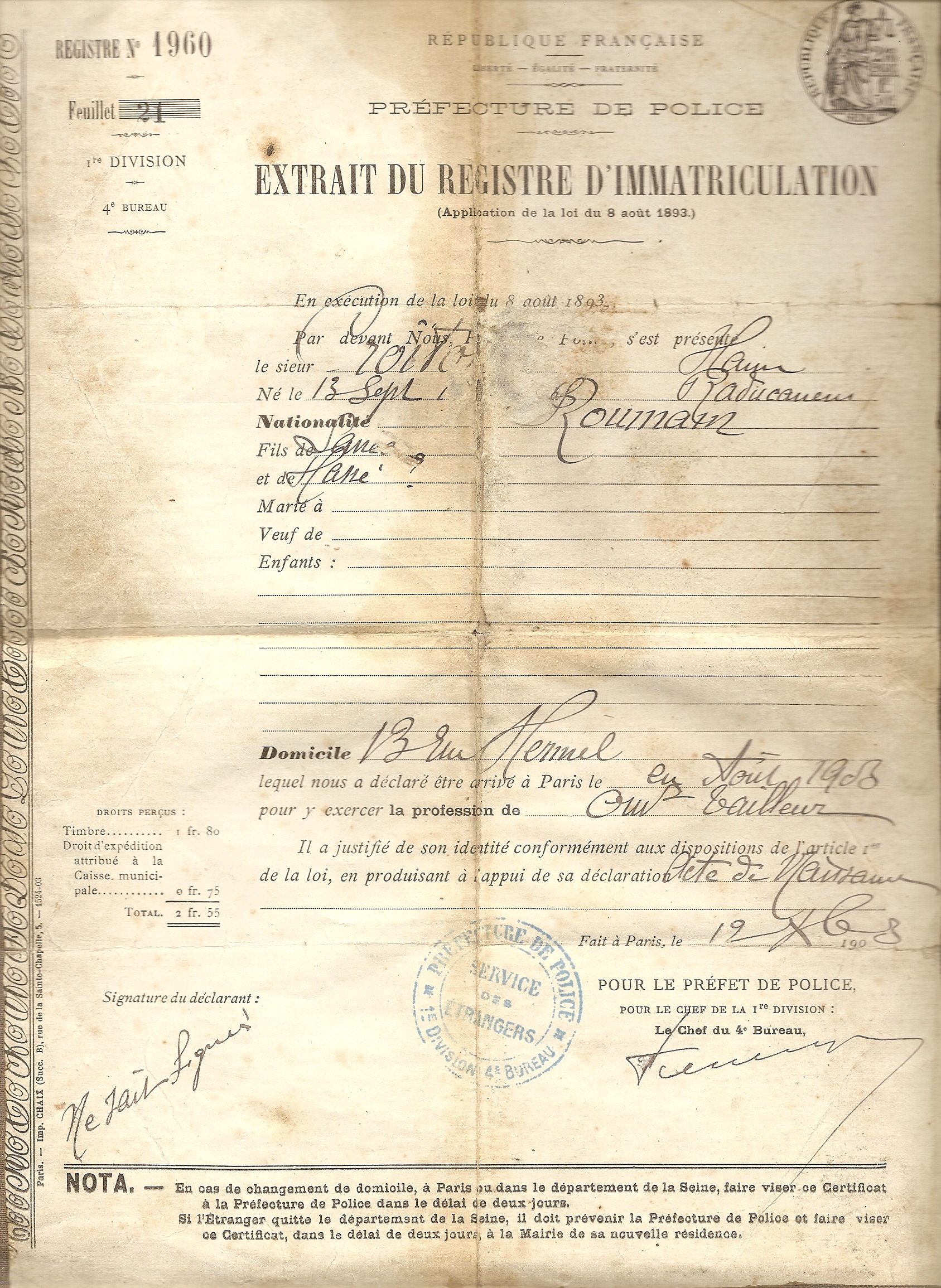
|

|
Document
from Paris France
for Haim Croitoriu (Beenstock)
|
Memorial
plaques from Manchester
|
|
|
Birth
record
of
Mincu Croitoriu
daughter of Shloimie Meir & Rivka.
In England they changed their name from
Croitoriu to Beenstock
Mincu (Minnie) went to live in the USA
later returned to Manchester.
The children of Shloimie & Rifka were:
Isaac, Mincu, Berel, Frieda, born in
Raducaneni
Eli, Srule, Cissie, born in Manchester
Shloimie was the brother of Chaim Beenstock
& Smelki Croitoriu
From 1916 to 1920 Shloimie Beenstock & Jack
Lieberman
were in partnership making army uniforms,
after the war they made uniforms for the
postal service & the tram car companies. |
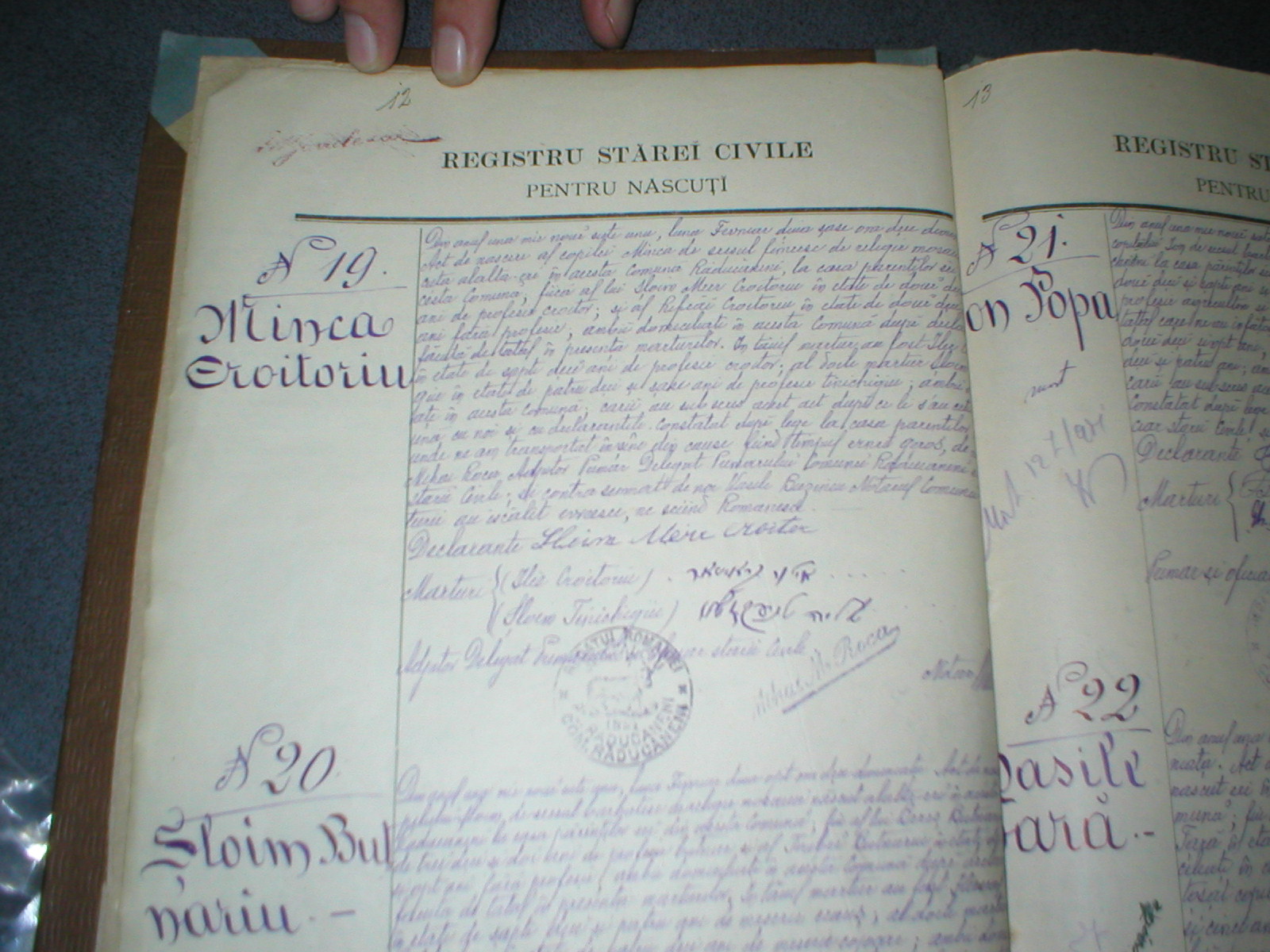
|
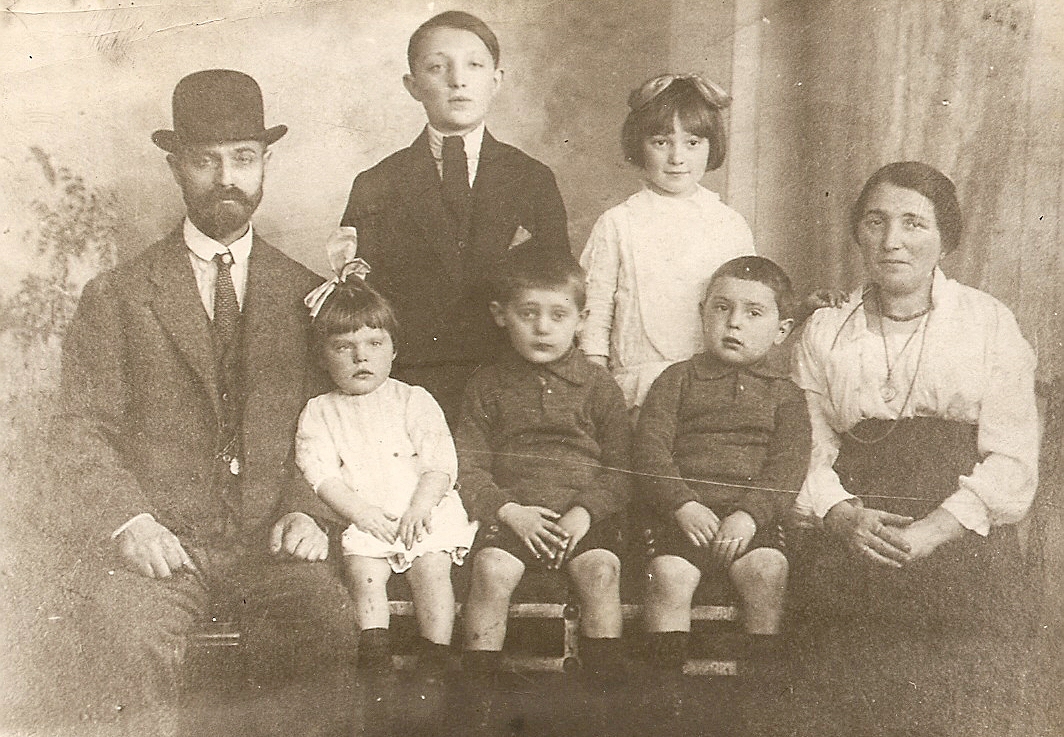 |
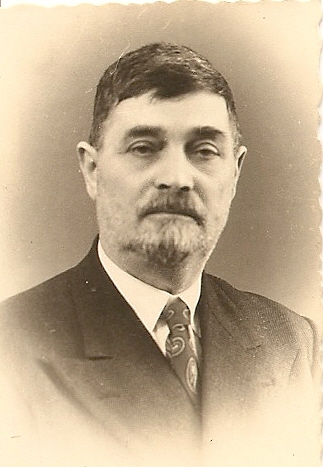 |
Shloimie
Meir & Rivka
Probably the Barmitzvah of Berel in 1919
|
Shloimie
Meir Beenstock |

|
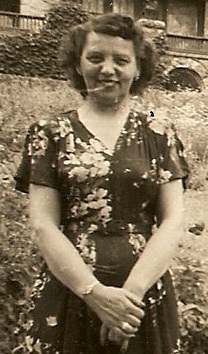 |
Isaac
(Ike)
Beenstock
|
Minnie
Beenstock
See above birth record Mincu Croitoriu
|
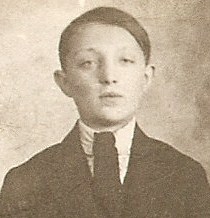
|
 |
| Bernard
(Berel)
Beenstock
|
Cissie,
Eli, Frieda,
Beenstock
Frieda married Motty Sherman |
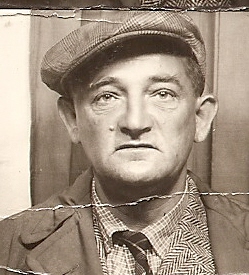
|
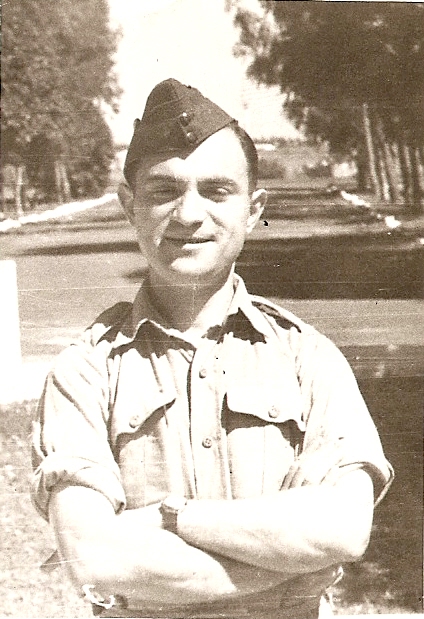 |
| Eli
Beenstock |
Srule
Beenstock
in Palestine |

|
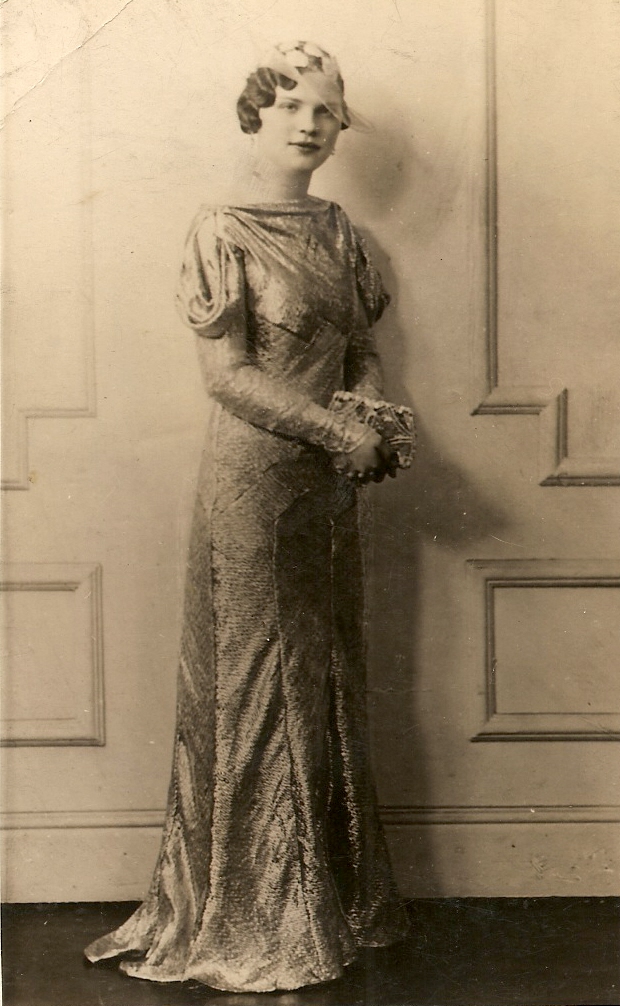 |
Shloimie
Meir
& Chaim
Beenstock
|
Cissie
Beenstock
Married Alex Brown
|
|
|
|
|
|

